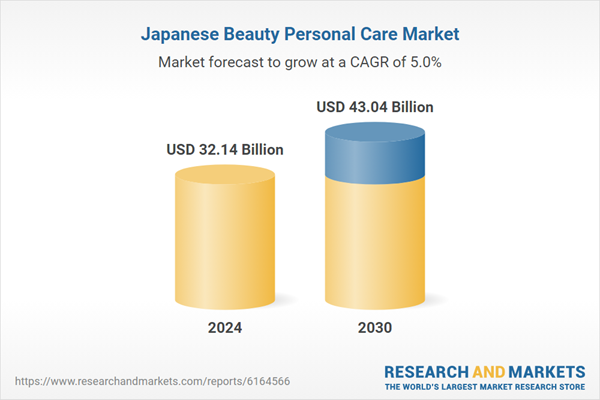Speak directly to the analyst to clarify any post sales queries you may have.
10% Free customizationThis report comes with 10% free customization, enabling you to add data that meets your specific business needs.
Japanese consumers also value high-quality, effective, and innovative products, leading to continuous advancements in product formulations and beauty technology. Cultural emphasis on grooming, cleanliness, and minimalistic beauty routines further boosts the use of skincare and personal care items. Also, growing awareness of natural and organic ingredients has increased demand for clean beauty products. E-commerce growth and the influence of social media and beauty influencers have also played a significant role in shaping consumer preferences and expanding market reach across various age groups.
Key Market Drivers
Surging Aging Population Across the Region
A key driver of the Japan Beauty and Personal Care market is the surging aging population across the region. As a part of this, according to a recent study, as of 2024, nearly one-third of Japanese citizens are now 65 years of age or older, with the country's senior population reaching a record high of 36.25 million. This demographic shift has significantly influenced consumer behavior and product development within the beauty and personal care sector.Older consumers increasingly seek advanced skincare products that address age-related concerns such as wrinkles, dryness, age spots, and loss of elasticity. As a result, brands are investing in research and development to create anti-aging, hydrating, and rejuvenating solutions tailored to mature skin. Also, this age group tends to prioritize product quality, safety, and efficacy, driving demand for premium offerings. The growing focus on maintaining a youthful appearance and overall wellness among seniors continues to fuel innovation and expansion in Japan's dynamic beauty and personal care industry.
Key Market Challenges
Fluctuating Prices of Raw Material
Fluctuating prices of raw materials pose a significant challenge to the Japan beauty and personal care market. Many ingredients used in product formulations, such as essential oils, natural extracts, and specialty chemicals, are subject to global price volatility due to factors like climate change, supply chain disruptions, and geopolitical tensions.These fluctuations increase production costs for manufacturers, making it difficult to maintain consistent pricing and profit margins. In addition, Japan relies heavily on imported raw materials, making the market more vulnerable to currency exchange rate shifts and international trade dynamics. The unpredictability of costs can hinder product development and innovation, especially for small and mid-sized companies. To mitigate this challenge, companies are exploring alternative ingredients, optimizing supply chains, and adopting more sustainable sourcing practices to ensure long-term stability and competitiveness.
Key Market Trends
Increased Focus on Sustainable Packaging
An increased focus on sustainable packaging is a significant trend in Japan's beauty and personal care market, driven by growing environmental awareness and consumer demand for eco-friendly products. Japanese consumers are increasingly seeking products with recyclable, biodegradable, or reusable packaging, prompting brands to adopt more sustainable practices.Companies like Shiseido and Kao Corporation are leading the way by introducing refillable containers and committing to reducing plastic waste. Also, innovations in packaging materials, such as the use of recycled content and biodegradable plastics, are gaining traction. This shift not only aligns with global sustainability goals but also enhances brand image and consumer loyalty. As a result, sustainable packaging has become a key differentiator in the competitive Japanese beauty market.
Key Market Players
- Revlon
- Coty Inc.
- Hoyu Cosmetics Co., Ltd
- Kao Group
- Avon Cosmetics Limited
- Loreal S.A.
- Unilever Japan Group
- The Procter & Gamble Company
- Beiersdorf AG
- KHK Cosmetics
Report Scope:
In this report, the Japan Beauty Personal Care Market has been segmented into the following categories, in addition to the industry trends which have also been detailed below:Japan Beauty Personal Care Market, By Product Type:
- Hair Care (Shampoo, Conditioner, Serum, Others)
- Skin Care (Foundation, Face Powder, Moisturizer, Others)
- Bath & Shower Products
- Oral Products
- Nail Care
- Lip Care (Lipstick, Lip Balm, Others)
- Others
Japan Beauty Personal Care Market, By Price Range:
- Economy/Mass
- Premium/Luxury
Japan Beauty Personal Care Market, By End User:
- Men
- Women
- Kids
Japan Beauty Personal Care Market, By Distribution Channel:
- Supermarkets/Hypermarkets
- Convenience Stores
- Specialty Stores
- Online
- Others
Japan Beauty Personal Care Market, By Region:
- Hokkaido & Tohoku
- Chubu
- Chugoku
- Kyushu
- Rest of Japan
Competitive Landscape
Company Profiles: Detailed analysis of the major companies present in the Japan Beauty Personal Care Market.Available Customizations:
With the given market data, the publisher offers customizations according to a company's specific needs. The following customization options are available for the report.Company Information
- Detailed analysis and profiling of additional market players (up to five).
Table of Contents
Companies Mentioned
- Revlon
- Coty Inc.
- Hoyu Cosmetics Co., Ltd
- Kao Group
- Avon Cosmetics Limited
- Loreal S.A.
- Unilever Japan Group
- The Procter & Gamble Company
- Beiersdorf AG
- KHK Cosmetics
Table Information
| Report Attribute | Details |
|---|---|
| No. of Pages | 82 |
| Published | August 2025 |
| Forecast Period | 2024 - 2030 |
| Estimated Market Value ( USD | $ 32.14 Billion |
| Forecasted Market Value ( USD | $ 43.04 Billion |
| Compound Annual Growth Rate | 4.9% |
| Regions Covered | Japan |
| No. of Companies Mentioned | 10 |









